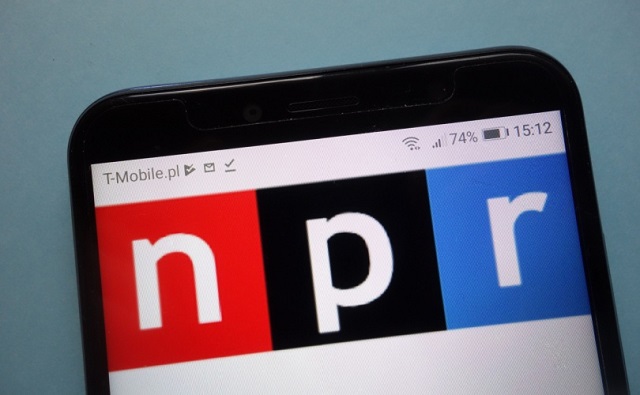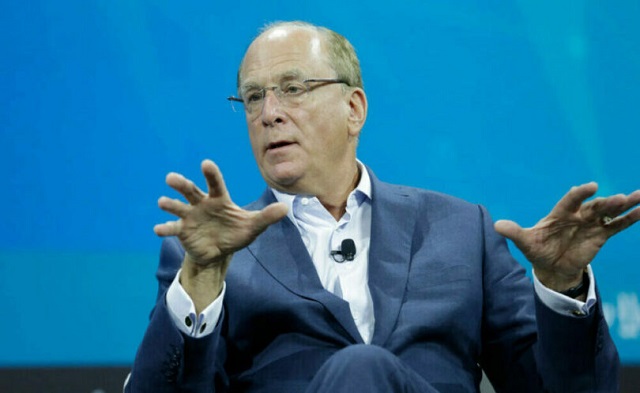News
Albertans Concerned About Interest Rate Hikes & Housing Bubble

A new survey released by MNP LTD finds that Albertans are concerned about the uncertainty of a potential housing bubble and impending interest rate hikes, adding financial stress to households already carrying a record level of debt.
Six in ten (61 per cent) of Albertans and nearly half (48 per cent) of Canadians homeowners are concerned about the impact rising interest rates will have on their finances. At the same time, more than half of Albertans (59 per cent) are worried about the potential impact that a decline in house prices might have on homeowners.
“So many are over-leveraged right now. Making matters worse, many are not making regular payments against the principal. With the financial stress of the downturn, and the threat of an increase in interest rates, many are going to find it even harder to make ends meet,” says Donna Carson, Licensed Insolvency Trustee at MNP LTD, a division of MNP LLP.
Nearly four in ten (39 per cent) homeowners in Alberta say that they will be faced with financial difficulties if the value of their home goes down, the highest proportion among other provinces. Even if home values don’t decline in the near future; three in ten Albertans (31 per cent) who have a mortgage agree that they are ‘in over their head’ with their current mortgage payments.
Homeowners aren’t the only ones concerned. Nearly eighty per cent of Albertans rate their ability to cope with a 1% interest rate increase as less than optimal. The vast majority of Albertans (83 per cent) would have difficulty absorbing an additional $130 per month in interest payments on debt.
“We’ve become far too comfortable paying only the minimum payments on our debts. It’s time to start assessing our ability to pay down those debts and ask ourselves if we can truly afford them if there is a rate change,” says Carson.
When asked about their personal debt situation, the majority of Albertans don’t feel optimistic. Nearly seven in ten (69 per cent) rated their debt situation as less than good, while sixteen per cent rated their situation as bad. On a scale of one to ten, from terrible to excellent, Albertans gave themselves an average rating of 6.
With nearly four in ten Albertans (38 per cent) finding themselves within $200 per month of financial insolvency, there is little wiggle room left to pay any unexpected bills or debts. If that amount is increased to $300 per month, a staggering forty-two per cent of Albertans would be on the verge of insolvency, with nearly one in four (22 per cent) not making enough to cover their bills and debt payments. Four in ten (42 per cent) say they are concerned about their current level of debt.
“Albertans should be bracing themselves for what’s ahead, especially those who already consider themselves to be in financial distress. Seek professional advice and start creating a realistic plan to deal with that debt,” says Carson.
Survey Highlights include:
- Three in ten Albertans with a mortgage agree they are ‘in over their head’ with their current mortgage payments
- Nearly four in ten homeowners in Alberta agree they will face financial difficulties if the value of their home goes down, six in ten Albertans think we’re in a housing bubble
- Six in ten Albertans agree they are concerned about the impact of rising interest rates
- Nearly eighty per cent of Albertans rate their ability to cope with a 1% interest rate increase as less than optimal
- Over a quarter (27%) of Canadians with a mortgage agree that they are ‘in over their head’ with their current mortgage payments. This includes more than one in three Quebecers (35%), followed by residents of BC (32%), Alberta (31%), Atlantic Canada (25%), Saskatchewan and Manitoba (23%), and Ontario (21%).
- Half of Canadians (51%) are concerned about the potential impact on home owners that a decrease in house prices might bring.
- Over forty (44%) of Canadians are within $200 of financial insolvency at the end of the month, down 8 points from March 2017, and 12 points from September 2016.
- Women are significantly more likely (48% women vs. 39% men) than men to be within $200 of insolvency at month-end.
- Gen X’ers are more likely (48%) to be within $200 of insolvency at month-end, compared to Millennials (43%) and Baby Boomers (40%).
- Half of Canadians (50%) are $300 per month away from being financially insolvent.
- Atlantic Canadians are the most likely to rate their personal debt situation as ‘bad’ – the highest in the country at 22%
- While two in three Canadians (67%) think we’re in a housing bubble, only a minority (43%) expect that bubble to burst through a decline in house prices in the next year. Half (51%) are concerned about the potential impact on home owners that such a decrease might bring.
Jordan Peterson
Jordan Peterson slams CBC for only interviewing pro-LGBT doctors about UK report on child ‘sex changes’

From LifeSiteNews
The recently published Cass Review found that ‘gender medicine’ is ‘built on shaky foundations’ and recommended against surgical or pharmaceutical intervention for gender-confused children.
Dr. Jordan Peterson has condemned the government-funded Canadian Broadcasting Corporation for handpicking doctors to discuss evidence against the gender “transitioning” of children.
In an April 15 X post, Peterson blasted the CBC for only selecting pro-LBGT doctors to discuss the U.K. National Health Service’s Cass Review, which exposes the dangers of “transitioning” children through mutilating means, such as pharmaceutical drugs and surgeries.
“All the truth the unrepentant butcher-enablers at @CBCNews are capable of is invisibly hidden in this one line: ‘Canadian doctors who spoke to CBC disagree…’” he slammed.
All the truth the unrepentant butcher-enablers at @CBCNews are capable of is invisibly hidden in this one line: "Canadian doctors who spoke to CBC disagree…"
Right. All the "doctors" who spoke to @CBCNews were chosen because they disagreed.
My conscience is troubled by the… pic.twitter.com/0vkianwMiP
— Dr Jordan B Peterson (@jordanbpeterson) April 15, 2024
“Right. All the ‘doctors’ who spoke to @CBCNews were chosen because they disagreed,” Peterson asserted.
“I find them detestable,” he added. “Everything they publish is a lie in one damned way or another.”
“And these lies lead to the crimes against humanity denounced by the Cass report.”
The Cass Review, published earlier this month, is the world’s largest review into “transgender” interventions for minors. Dr. Hilary Cass, the pediatrician commissioned by the UK’s National Health Service to review the transgender “services” being made available to gender-confused minors, is scathing in her analysis.
Cass found that “gender medicine” is “built on shaky foundations,” and that while these drastic interventions should be approached with extreme caution, “quite the reverse happened in the field of gender care [sic] for children.”
She determined that there is insufficient evidence to support giving medical treatment to children and “for most young people, a medical pathway will not be the best way to manage their gender-related distress.”
However, the report was not well received by the CBC, which ran an article criticizing the report and the U.K.’s recent decision to ban puberty blockers and cross-sex hormones for youth under 16.
“While experts in the field say more studies should be done, Canadian doctors who spoke to CBC News disagree with the finding that there isn’t enough evidence puberty blockers can help,” the CBC wrote.
However, as Peterson pointed out, the CBC only interviewed pro-LGBT doctors who supported their agenda, including one who suggested that “transgender” surgeries are as natural as giving birth.
“That would be kind of like saying for a pregnant woman, since we lacked randomized clinical trials for the care of people in pregnancy, we’re not going to provide care for you… It’s completely unethical,” Dr. Jake Donaldson, a Calgary physician who treats “transgender” patients, told CBC.
“There actually is a lot of evidence, just not in the form of randomized clinical trials,” he added.
On the same day as the CBC report, Calgary pediatrician Dr. J. Edward Les wrote an article published by the Macdonald-Laurier Institute, agreeing with the Cass Review conclusions.
“If nothing else, the scathing final report of the Cass Review released this week (but commissioned four years ago to investigate the disturbing practices of the UK’s Gender Identity Service), is a reminder that doctors historically are guilty of many sins,” he wrote in his opening line.
Les also blasted the Canadian law, particularly Bill C-4, which banned a number of practices considered to be “conversion therapy,” including “any practice, service or treatment designed to change a person’s gender identity.”
“As far as I know, no one has been charged, let alone imprisoned, since the bill was passed into law,” wrote the doctor. “But it certainly has cast a chill on the willingness of providers to deliver appropriate counselling to gender-confused children: few dare to risk it.”
Indeed, while the CBC was unable or perhaps unwilling to find doctors who agreed with the Cass report, Les is hardly alone in challenging the LGBT narrative surrounding the mutilation of the gender-confused, especially minors.
LifeSiteNews has compiled a list of medical professions and experts who warn against “transgender” surgeries, warning of irreversible changes and lifelong side effects.
Moreover, internal documents from the World Professional Association for Transgender Health (WPATH) have shown that doctors who offer so-called “gender-affirming care” know that transgender hormones cause serious diseases, including cancer, but prescribed them anyway.
The internal documents, dubbed the “WPATH FILES,” include emails and messages from a private discussion forum by doctors, as well as statements from a video call of WPATH members. The files reveal that the doctors working for WPATH know that so-called “gender-affirming care” can cause severe mental and physical disease and that it is impossible for minors to give “informed consent” to it.
As LifeSiteNews has previously noted, research does not support the assertions from transgender activists that surgical or pharmaceutical intervention to “affirm” confusion is “necessary medical care” or that it is helpful in preventing the suicides of gender-confused individuals.
In fact, in addition to asserting a false reality that one’s sex can be changed, transgender surgeries and drugs have been linked to permanent physical and psychological damage, including cardiovascular diseases, loss of bone density, cancer, strokes and blood clots, infertility, and suicidality.
There is also overwhelming evidence that those who undergo “gender transitioning” are more likely to commit suicide than those who are not given irreversible surgery. A Swedish study found that those who underwent “gender reassignment” surgery ended up with a 19.2 times greater risk of suicide.
Indeed, there is proof that the most loving and helpful approach to people who think they are a different sex is not to validate them in their confusion but to show them the truth.
A new study on the side effects of transgender “sex change” surgeries discovered that 81 percent of those who had undergone “sex change” surgeries in the past five years reported experiencing pain simply from normal movement in the weeks and months that followed — and that many other side effects manifest as well.
Censorship Industrial Complex
NPR senior editor admits extreme bias in Russia collusion, Hunter Biden laptop, COVID coverage

From LifeSiteNews
‘There’s an unspoken consensus about the stories we should pursue and how they should be framed. … one story after another about instances of supposed racism, transphobia, signs of the climate apocalypse, Israel doing something bad, and the dire threat of Republican policies … ’
A longtime senior editor at National Public Radio (NPR) published a blistering critique of the government-funded “news” outlet’s extreme liberal bias, citing how NPR willfully “turned a blind eye” to the truth concerning alleged Russian collusion with the Trump campaign, Hunter Biden’s laptop, and the origin of COVID-19.
The Free Press’ explosive 3,500-word op-ed “I’ve Been at NPR for 25 Years. Here’s How We Lost America’s Trust.” by Uri Berliner confirms what many heartland Americans have known for decades: “An open-minded spirit no longer exists within NPR, and now, predictably, we don’t have an audience that reflects America.”
“Our news audience doesn’t come close to reflecting America,” wrote Berliner, who has worked at NPR for 25 years. “It’s overwhelmingly white and progressive, and clustered around coastal cities and college towns.”
Berliner paints a picture of an organization driven by DEI (Diversity, Equity, and Inclusion) that almost always “defaulted to ideological story lines,” and is damaged by “the absence of viewpoint diversity.”
“I looked at voter registration for our newsroom. In D.C., where NPR is headquartered and many of us live, I found 87 registered Democrats working in editorial positions and zero Republicans,” Berliner wrote. “None.”
When he presented his findings at an all-hands editorial staff meeting, suggesting “we had a diversity problem with a score of 87 Democrats and zero Republicans, the response wasn’t hostile. It was worse. It was met with profound indifference.”
Berliner draws attention to three enormous examples of NPR’s blindness regarding enormously important stories, a blindness that likely produced real-world consequences concerning the two most recent U.S. presidential elections and COVID-19 policies.
Russia collusion hoax
“Persistent rumors that the Trump campaign colluded with Russia over the election became the catnip that drove reporting,” Berliner said. “At NPR, we hitched our wagon to Trump’s most visible antagonist, Representative Adam Schiff.”
“Schiff, who was the top Democrat on the House Intelligence Committee, became NPR’s guiding hand, its ever-present muse,” he explained. “By my count, NPR hosts interviewed Schiff 25 times about Trump and Russia. During many of those conversations, Schiff alluded to purported evidence of collusion. The Schiff talking points became the drumbeat of NPR news reports.”
“But when the Mueller report found no credible evidence of collusion, NPR’s coverage was notably sparse,” Berliner confessed. “Russiagate quietly faded from our programming.”
“It is one thing to swing and miss on a major story,” Berliner allowed. “What’s worse is to pretend it never happened, to move on with no mea culpas, no self-reflection. Especially when you expect high standards of transparency from public figures and institutions but don’t practice those standards yourself. That’s what shatters trust and engenders cynicism about the media.”
Hunter Biden’s laptop ignored ‘because it could help Trump’
After the New York Post published a shocking report about the contents of Hunter Biden’s laptop just weeks before the 2020 election, “NPR turned a blind eye.”
NPR’s managing editor dismissed the important story, saying “we don’t want to waste the listeners’ and readers’ time on stories that are just pure distractions.”
“But it wasn’t a pure distraction, or a product of Russian disinformation, as dozens of former and current intelligence officials suggested,” Berliner wrote. “The laptop did belong to Hunter Biden. Its contents revealed his connection to the corrupt world of multimillion-dollar influence peddling and its possible implications for his father.”
“The laptop was newsworthy. But the timeless journalistic instinct of following a hot story lead was being squelched,” he continued. “During a meeting with colleagues, I listened as one of NPR’s best and most fair-minded journalists said it was good we weren’t following the laptop story because it could help Trump.”
NPR’s COVID-19 pandemic coverage ‘defaulted to ideological story lines’
Berliner described how NPR’s COVID-19 coverage fervently embraced a one-sided political narrative, promoting the notion that the virus came from a wild animal market in Wuhan while totally disregarding the possibility that it might have escaped from a Wuhan lab.
“The lab leak theory came in for rough treatment almost immediately, dismissed as racist or a right-wing conspiracy theory,” Berliner said. “Anthony Fauci and former NIH head Francis Collins, representing the public health establishment, were its most notable critics. And that was enough for NPR. We became fervent members of Team Natural Origin, even declaring that the lab leak had been debunked by scientists.
“Reporting on a possible lab leak soon became radioactive,” Berliner said. “But the lab leak hypothesis wouldn’t die.
“Over the course of the pandemic, a number of investigative journalists made compelling, if not conclusive, cases for the lab leak. But at NPR, we weren’t about to swivel or even tiptoe away from the insistence with which we backed the natural origin story,” Berliner wrote. “We didn’t budge when the Energy Department — the federal agency with the most expertise about laboratories and biological research — concluded, albeit with low confidence, that a lab leak was the most likely explanation for the emergence of the virus.”
“Instead, we introduced our coverage of that development on February 28, 2023, by asserting confidently that ‘the scientific evidence overwhelmingly points to a natural origin for the virus.’”
In all three cases, “politics were blotting out the curiosity and independence that ought to have been driving our work.”
DEI now trumps journalistic principles at NPR
“To truly understand how independent journalism suffered at NPR, you need to step inside the organization,” explained Berliner, who emphasized that the most damaging development at NPR over the last few years has been the absence of viewpoint diversity.
DEI considerations trumped journalistic principles. “Identity” groups within the organization — including Transgender People in Technology Throughout Public Media and NPR Pride (LGBTQIA employees at NPR) are now “given a seat at the table in determining the terms and vocabulary of our news coverage.”
“There’s an unspoken consensus about the stories we should pursue and how they should be framed. It’s frictionless — one story after another about instances of supposed racism, transphobia, signs of the climate apocalypse, Israel doing something bad, and the dire threat of Republican policies,” Berliner said. “It’s almost like an assembly line.”
Berliner concluded:
With declining ratings, sorry levels of trust, and an audience that has become less diverse over time, the trajectory for NPR is not promising. Two paths seem clear. We can keep doing what we’re doing, hoping it will all work out. Or we could start over, with the basic building blocks of journalism. We could face up to where we’ve gone wrong. News organizations don’t go in for that kind of reckoning. But there’s a good reason for NPR to be the first: we’re the ones with the word public in our name.
-

 Brownstone Institute22 hours ago
Brownstone Institute22 hours agoDeborah Birx Gets Her Close-Up
-

 Economy2 days ago
Economy2 days agoExtreme Weather and Climate Change
-

 Bruce Dowbiggin2 days ago
Bruce Dowbiggin2 days agoWhy Are Canadian Mayors So Far Left And Out Of Touch?
-

 National2 days ago
National2 days agoCanada’s Governor General slammed for hosting partisan event promoting Trudeau’s ‘hate speech’ bill
-

 Frontier Centre for Public Policy2 days ago
Frontier Centre for Public Policy2 days agoThe Smallwood solution
-

 Alberta2 days ago
Alberta2 days agoDanielle Smith warns arsonists who start wildfires in Alberta that they will be held accountable
-

 International2 days ago
International2 days agoTelegram founder tells Tucker Carlson that US intel agents tried to spy on user messages
-

 Alberta21 hours ago
Alberta21 hours agoCoutts Three verdict: A warning to protestors who act as liaison with police






